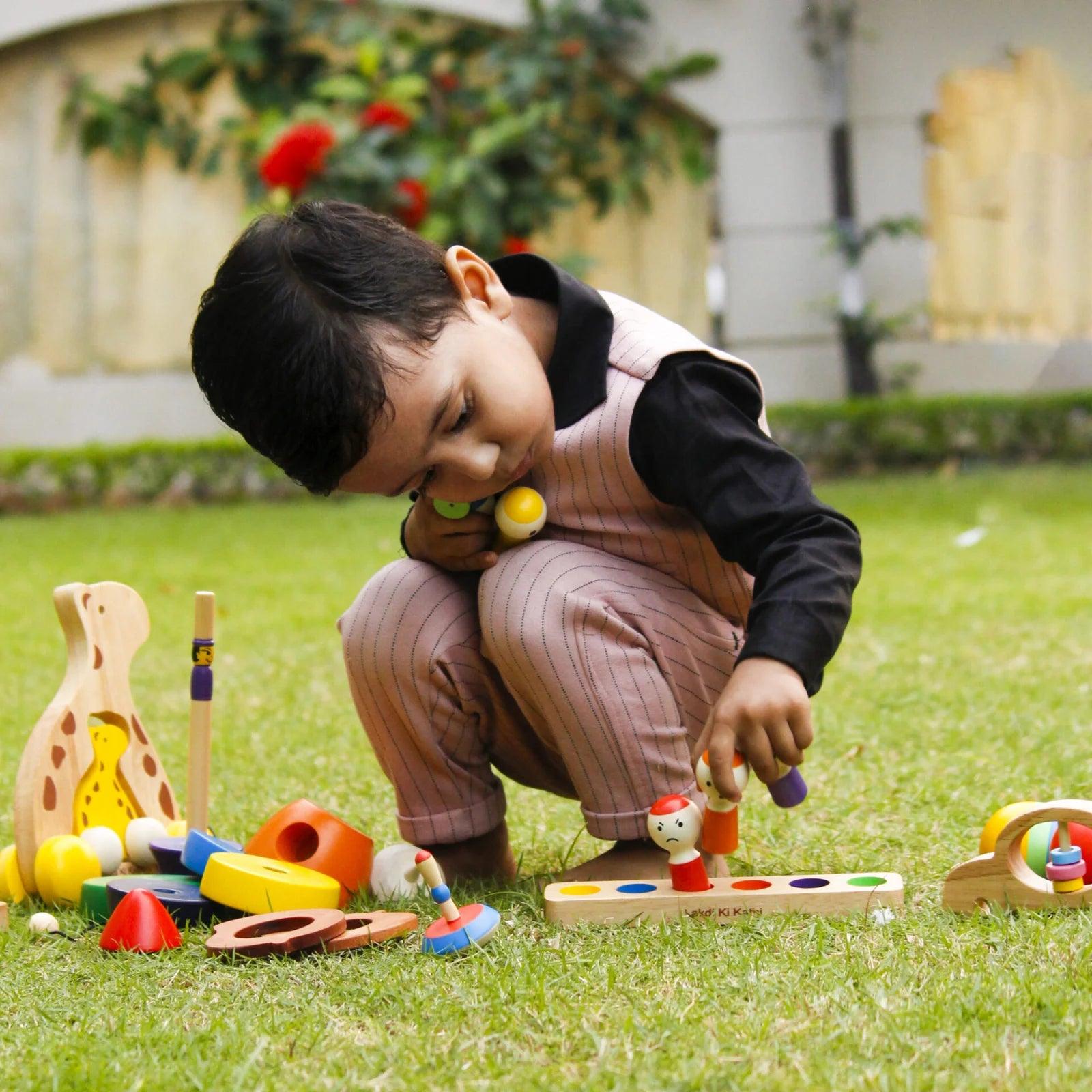
Play for Kids: The Foundation for Learning and Development
When it comes to parenting, there are countless things to consider, especially in the early years. While we often focus on providing the best nutrition, a safe environment, and early education, we may overlook one of the most essential components of a child’s growth and development: play. In this blog, we’ll explore the importance of play for kids and when to start introducing it into their lives.

Why Play Matters
Play is a fundamental aspect of childhood that transcends cultural boundaries. It’s not just a way for kids to have fun; it’s a vital component of their learning and development. Here’s why play matters so much:
- Cognitive Development: Play encourages problem-solving, critical thinking, and creativity. Children learn to experiment, make choices, and think abstractly.
- Social and Emotional Skills: Play provides opportunities for children to interact with others, negotiate, cooperate, and build empathy. They learn about emotions, relationships, and how to handle conflicts.
- Language Development: Through play, kids expand their vocabulary, practice communication, and develop listening skills. They learn to express themselves and understand others.
- Physical Health: Active play helps kids develop motor skills, balance, and coordination. It’s an important foundation for a healthy lifestyle.
- Confidence and Self-Esteem: As children explore, discover, and succeed in play, they build self-confidence and a sense of achievement.
- Independence: Play allows children to make choices and decisions, fostering independence and a sense of responsibility.
When to Start Introducing Play
Play begins from day one, even if it’s in the form of infants grasping for a colorful toy or toddlers engaging in peek-a-boo. Here’s a general timeline of when and how to introduce play throughout a child’s early years:
1. Infancy (0-1 year):
Start with sensory toys, mobiles, and soft, colorful items.
Engage in activities like tummy time to encourage physical exploration.
Sing songs and nursery rhymes to stimulate auditory development.
2. Toddlerhood (1-3 years):
Provide age-appropriate toys like building blocks, stacking toys, and simple puzzles.
Encourage imaginative play with dolls, stuffed animals, and toy cars.
Spend time in outdoor play to develop gross motor skills.
3. Preschool (3-5 years):
Introduce more complex puzzles, art supplies, and board games to enhance cognitive development.
Encourage imaginative play where kids can create stories and act out roles.
Foster social skills by arranging playdates or group activities.
4. School Age (5+ years):
Continue imaginative and cooperative play.
Explore sports and team activities to build physical and social skills.
Provide access to books and educational games to support academic learning.
Tips for Encouraging Play
- Offer a Variety of Toys: Provide toys that stimulate different senses and skills.
- Balance Screen Time: Limit screen time and prioritize hands-on play.
- Play with Your Child: Participate in their play to bond and provide guidance when needed.
- Create a Safe Environment: Ensure a safe, child-friendly space for play, both indoors and outdoors.
- Encourage Unstructured Play: Allow time for free play, where kids use their imagination without specific instructions or rules.
In conclusion, play is a critical aspect of early childhood development. It’s not something that can wait until later; it should start from birth and evolve as your child grows. Embrace the importance of play in your parenting journey, and watch as your child learns, explores, and thrives through the magic of play.



